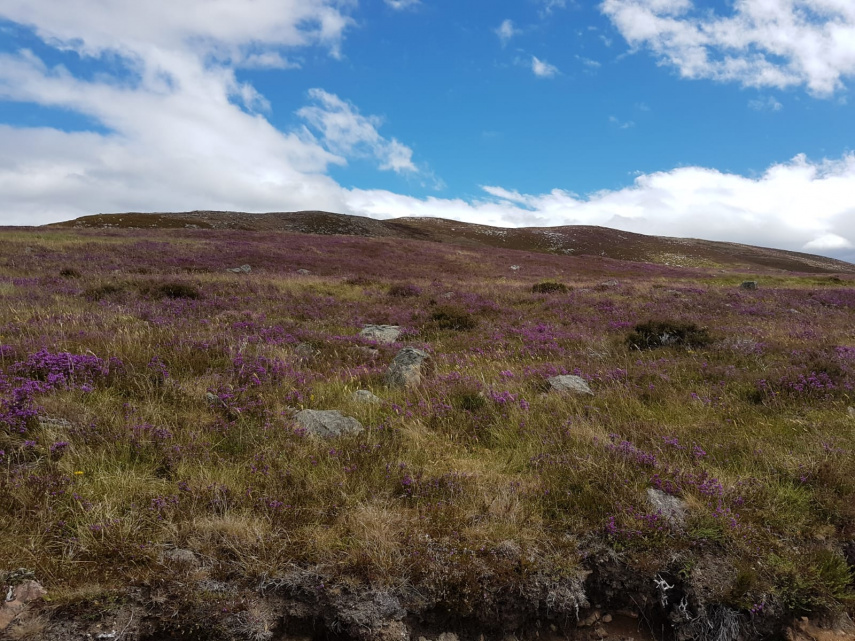
Piloting Land Rights and Responsibilities Assessment: SLE Members’ Experience
Sarah Madden
In this blog, Sarah Madden, Policy Adviser (Rural Communities) with Scottish Land & Estates (SLE), explores the experiences from the cohort of SLE land managers and owners who took part in the Land Rights and Responsibilities Self-Assessment Pilot Programme in 2020-2021. The programme explored a voluntary self-assessment process against the Scottish Land Rights and Responsibilities Statement (LRRS) for land owners and managers across a range of sectors.
At SLE, we believe that the way land is used and managed in Scotland can and already does have positive impacts on the environments and communities. Many of our members are working hard to make their land work for local economies and the environment, and in doing this are employing the Land Rights and Responsibilities Statement (LRRS) principles. Furthermore, in 2014, SLE launched its Landowners’ Commitment, the principles of which are in many ways reflected in the LRRS. We are engaging with our members to roll out knowledge of the LRRS and help them see the benefits that employing its principles can have on their businesses and the wider community.
SLE has collaborated with the Scottish Land Commission on piloting a self-assessment programme to measure the implementation and delivery of the six LRRS principles amongst our members.
Answering the self-assessment was not without its challenges for some members as they saw this as quite an onerous task for very limited benefits. However, it gave land managers an opportunity to recognise and demonstrate the good work they already carry out and where they already employ the LRRS principles in their day-to-day operations. It also raised numerous examples of good practice that many members would not normally consider highlighting, as it’s merely “what we do”.
The importance of this cannot be understated – there are many land managers/owners with diverse businesses that can and do provide many benefits to communities, such as facilitating sustainable local economies, producing local high-quality food, rural jobs and skills, vital environmental projects such as woodland creation and peatland restoration, footpath creation and maintenance for outdoor recreation, biodiversity projects and much needed rural housing.
Ultimately though, not all respondents felt it was appropriate to be measured against the parameters set by the SLC or the Government, which were felt to be quite restrictive and couched in negative terms. There was a feeling of being externally measured or tested without important context, which led to some discouragement. Additionally, being asked to provide detailed evidence was difficult, time consuming and ultimately disincentivising for respondents. Often, the complexities of the businesses meant it required input from multiple people leading to it becoming a drawn-out task.
We are, therefore, keen to help our members see the benefits of evolving, pro-active, responsible landownership, whilst also recognising much of the good work which is already being undertaken.
To this end, we aspire to create a form of light-touch self-assessment that is empowering and incentivising to all landowners, regardless of size, ownership or tenure. To do this it must be clear that these are not scorecards which will be ‘marked’ but a progress update on what they are doing and a quick check on their work. There is also a concern among our membership that this process may evolve into something much different in the future.
A light-touch approach could include shorter, open-ended questions, something as simple as “what are you doing to promote community engagement?” Respondents would be at will to answer freely and creatively; by default, open-ended questions are thought-provoking and will reveal what land managers may want to start doing to increase their presence in any given area. We also believe the flexibility of this approach is accessible to all landowners regardless of size, tenure or resource.
Overall, we are keen to see more encouraging language in self-assessment, which invites the respondent to use it as a tool to benefit their business and local communities. Ultimately a self-assessment, if called that in the end, should foster a common goal of responsible ownership, which contributes to resilient local economies and communities.
At SLE we will continue to promote the LRRS and work with our members, the SLC and other stakeholders to ensure Scotland’s land benefits both rural communities and the environment.
